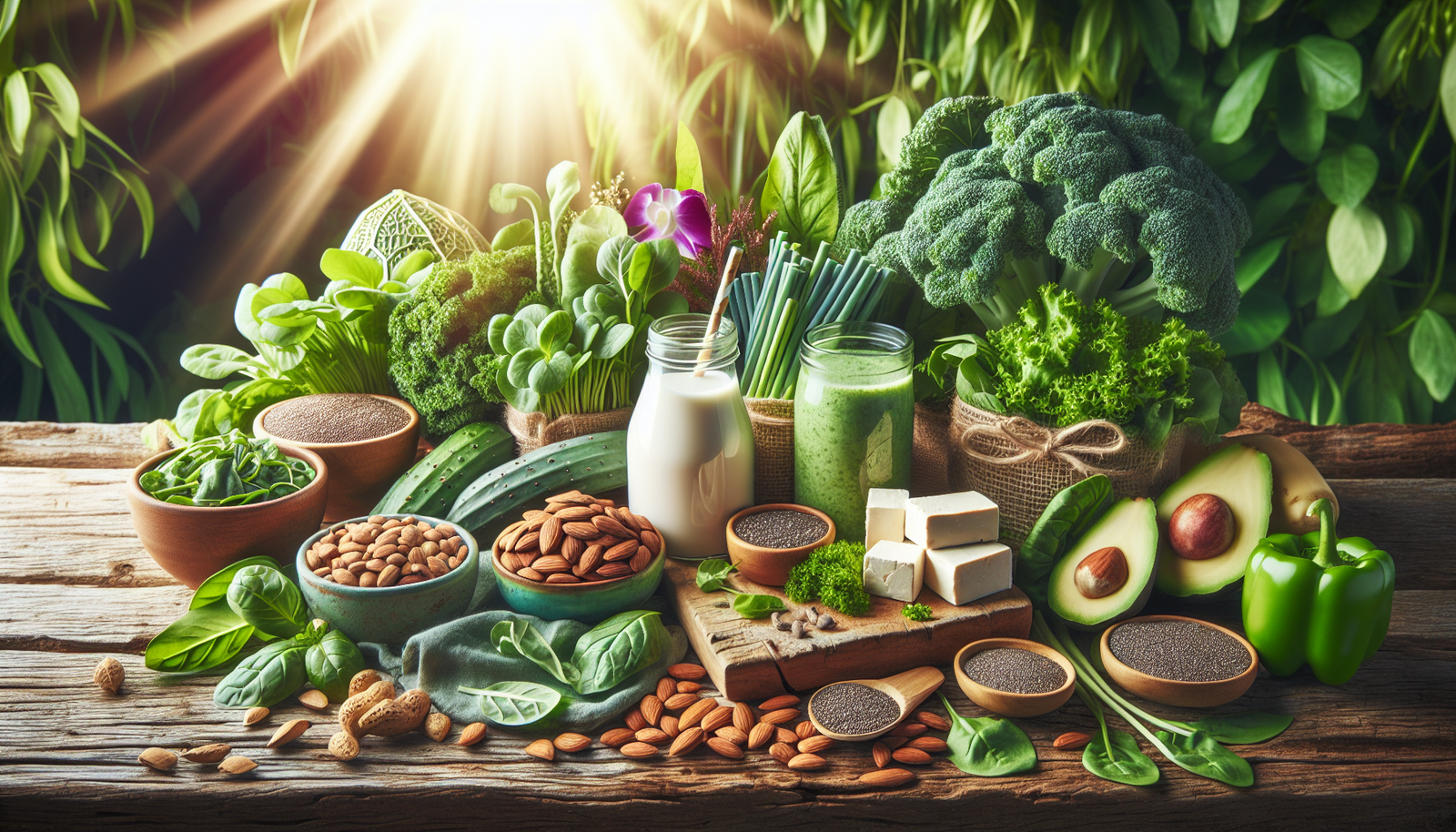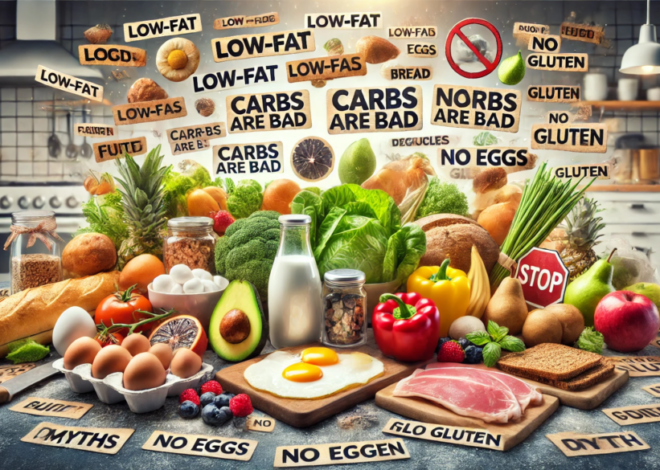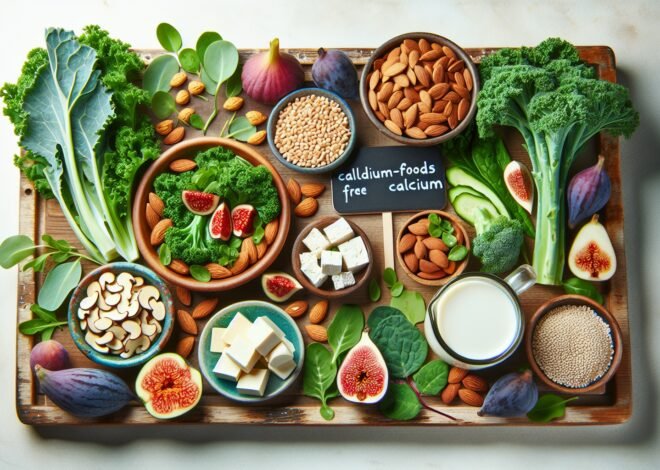
How to Improve Bone Health with a Balanced Plant-Based Diet
A plant-based diet for bone health can be surprisingly effective. While dairy is commonly touted for bone support, plant-based alternatives like leafy greens, seeds, and fortified plant milks can provide essential nutrients. Studies suggest that plant-based diets can enhance bone density and reduce fracture risk, given the right balance of calcium, vitamin D, and protein. This post will explore how to balance a plant-based diet to optimize bone health, emphasizing key nutrients and food sources. Dive in to discover how you can maintain strong bones without animal products.
Understanding the Importance of Bone Health on a Plant-Based Diet
Bone health is crucial for overall well-being, especially if you follow a plant-based diet. Ensuring strong bones requires a focus on specific nutrients that may be more challenging to obtain from vegan sources. Let’s explore key nutrients and plant sources that support robust bones.
Key Nutrients for Strong Bones in Vegan Diets
A plant-based diet can provide essential nutrients for bone health with mindful selection. One key component is calcium, vital for maintaining bone density and strength. While often associated with dairy, calcium is plentiful in plant sources like fortified plant milks, tofu, and leafy greens.
Vitamin D enhances calcium absorption, supporting bone structure. Though sunlight is a primary source, vegans can turn to fortified foods and supplements, especially in regions with limited sun exposure.
Vitamin K plays a significant role in bone metabolism. It helps regulate calcium binding in bone tissue. Rich sources include kale, broccoli, and Brussels sprouts.
Magnesium supports bone mineralization and enhances bone density. It’s found in nuts, seeds, whole grains, and legumes.
Protein is another foundational element for bones. While animal products are traditional protein sources, plants like lentils, chickpeas, and quinoa offer ample protein.
Omega-3 fatty acids, found in flaxseeds, chia seeds, and walnuts, have anti-inflammatory properties that benefit bone health.
Role of Calcium in Plant-Based Nutrition
Calcium is a cornerstone for bone strength. In a vegan diet, proper calcium intake ensures bones remain dense and resistant to fractures. Lack of calcium can lead to osteoporosis, making bones brittle.
Although dairy is often highlighted as the prime calcium source, plant-based options abound. Fortified non-dairy milks, such as almond, soy, or oat milk, contain added calcium. These alternatives can meet or exceed the calcium levels found in cow’s milk.
Green leafy vegetables like collard greens, turnip greens, and bok choy are excellent calcium sources. However, it’s crucial to note that some greens, like spinach, contain oxalates that inhibit calcium absorption.
Calcium-set tofu and tempeh are versatile additions to a vegan diet offering significant calcium content. Regular consumption of these foods helps maintain adequate calcium levels.
Nuts and seeds, especially almonds and sesame seeds, provide calcium along with healthy fats and protein. Including a variety of these foods in your diet ensures a balanced calcium intake.
Identifying Plant Sources Rich in Bone-Strengthening Nutrients
Finding plant sources rich in bone-strengthening nutrients is essential for vegans. While animal products are not an option, many plant-based foods are nutrient powerhouses.
Fortified foods are crucial, especially for nutrients like calcium and vitamin D. These include breakfast cereals, plant-based milks, and orange juices fortified with calcium.
Dark leafy greens are excellent for calcium, vitamin K, and other nutrients. Incorporate kale, collard greens, and arugula into salads, smoothies, or stir-fries.
Legumes such as beans, lentils, and peas are high in protein and magnesium. These play a dual role in supporting bone density and overall health.
Nuts and seeds provide a range of nutrients, including magnesium and healthy fats. Almonds, chia seeds, and sesame seeds are particularly beneficial.
Whole grains, like quinoa and brown rice, offer magnesium and other minerals. They are versatile staples that can be incorporated into any meal.
Effective Plant-Based Strategies to Enhance Bone Health
Boosting bone health on a vegan diet requires strategic planning and lifestyle choices. By focusing on nutrient absorption and incorporating key vitamins and minerals, vegans can maintain strong and healthy bones.
Maximizing Calcium Absorption on a Vegan Diet
To optimize bone health, understanding calcium absorption is vital. While consuming calcium-rich foods is important, ensuring your body absorbs this mineral effectively is equally crucial.
Pair calcium-rich foods with vitamin C. This combination enhances calcium absorption. Foods like oranges, strawberries, and bell peppers can be paired with calcium sources for a nutrient boost.
Limit foods high in oxalates and phytates. These compounds, found in spinach and certain grains, can hinder calcium absorption. Moderation is key to prevent interference with calcium intake.
Ensure adequate vitamin D levels, as this vitamin is essential for calcium absorption. Consider taking supplements or consuming fortified foods, particularly in areas with limited sunlight.
Maintain a balanced intake of protein and magnesium, as both are crucial for bone health. Excessive protein intake can lead to calcium excretion, so balance is key. Magnesium aids in calcium absorption and bone structure.
Role of Vitamin D and Sunlight in Bone Health on Vegan Diets
Vitamin D significantly influences bone health by enhancing calcium absorption. For vegans, obtaining adequate vitamin D can be challenging, especially in areas with limited sunlight.
Sunlight exposure is the natural way to boost vitamin D levels. Aim for 15-30 minutes of sun exposure several times a week, ensuring skin exposure without sunscreen. Timing and skin type affect vitamin D synthesis, so adjust exposure accordingly.
Fortified foods and supplements are essential during months with limited sunlight. Opt for vitamin D2 or D3 derived from lichen, a plant-based source suitable for vegans.
Monitor vitamin D levels through regular blood tests. This ensures you maintain optimal levels, adjusting diet or supplementation as needed.
Incorporate vitamin D-rich foods into your diet. Mushrooms exposed to sunlight or UV light are natural vegan sources of vitamin D.
Incorporating Vitamin K and Magnesium for Optimal Bone Health
Vitamin K and magnesium are crucial in maintaining bone health and density. Vegans should focus on incorporating these nutrients through diet and supplements if necessary.
Vitamin K is essential for bone formation and blood coagulation. It’s abundant in leafy greens like kale, spinach, and Swiss chard. Consuming these regularly supports bone health.
Magnesium is vital for bone mineralization and muscle function. Nuts, seeds, and whole grains are excellent magnesium sources. Adding pumpkin seeds, almonds, and quinoa to meals can boost intake.
Balance vitamin K and calcium intake. While both are essential, high calcium levels can interfere with vitamin K absorption. A varied diet helps maintain balance.
Consider supplements if dietary intake is insufficient. A healthcare provider can recommend appropriate vitamin K and magnesium supplements if needed.
Overcoming Common Challenges in Vegan Bone Health
Vegans often face unique challenges in maintaining bone health. Addressing these effectively ensures strong bones and overall vitality. Focus on protein, omega-3s, and strategies for active lifestyles.
Addressing Protein Concerns in a Plant-Based Lifestyle
Protein is a cornerstone of bone health, providing structure and support. While plant-based diets can fully meet protein needs, strategic planning is key.
Diversify protein sources. Incorporate legumes, nuts, seeds, whole grains, and soy products like tofu and tempeh. Each offers a unique amino acid profile, essential for bone health.
Monitor portion sizes to ensure adequate protein intake. While plants provide protein, larger quantities may be necessary compared to animal sources.
Combine plant proteins for a complete amino acid profile. Pair beans with rice or nut butter with whole grain bread for balanced meals.
Supplement with protein powders if dietary intake is insufficient. Opt for pea, hemp, or soy protein powders to boost intake without animal products.
Importance of Omega-3 Fatty Acids for Bone Strength
Omega-3 fatty acids are crucial for reducing inflammation and supporting bone health. While fish is a common omega-3 source, vegans can turn to plant-based alternatives.
Flaxseeds and chia seeds are excellent omega-3 sources. Add them to smoothies, oatmeal, or salads for a nutrient boost.
Walnuts and hemp seeds provide omega-3s and healthy fats. Incorporate these into snacks or meals for added benefits.
Consider algae-based supplements. These provide DHA and EPA, forms of omega-3s often found in fish oil, suitable for vegans.
Balance omega-6 intake. High omega-6 levels can interfere with omega-3 absorption. Use oils like olive or avocado oil, which have lower omega-6 content.
Managing Bone Health for Vegan Athletes and Active Individuals
Active lifestyles and athletic endeavors require special attention to bone health. For vegan athletes, focusing on nutrition and lifestyle habits ensures optimal performance and resilience.
Prioritize recovery and rest. Overtraining can weaken bones. Ensure adequate rest days and sleep to support bone repair and strength.
Incorporate strength training. Weight-bearing exercises enhance bone density and reduce injury risk. Include activities like weightlifting, yoga, or Pilates in routine workouts.
Monitor nutritional intake. Ensure adequate protein, calcium, and omega-3 fatty acids. Track meals to balance macronutrients and support bone health.
Stay hydrated. Proper hydration supports nutrient transport and joint health, essential for active individuals.
Consult healthcare professionals. Regular check-ups and consultations with dietitians can provide personalized advice, ensuring nutritional needs align with activity levels.
Conclusion
A plant-based diet can support bone health when well-planned to include adequate nutrients. Key nutrients for bone health such as calcium, vitamin D, and protein must be obtained from plant sources like fortified foods, leafy greens, and legumes. Vitamin B12 supplementation may be necessary for those on a strict plant-based diet. It’s important to monitor bone density and adjust dietary intake accordingly. Regular physical activity complements the nutritional benefits for overall bone strength.
FAQ
How does a plant-based diet impact bone health?
A plant-based diet can enhance bone health by providing essential nutrients like magnesium and potassium, which support bone density. These diets often contain high levels of antioxidants and anti-inflammatory compounds that contribute to overall bone strength.
Can plant-based foods provide enough calcium for strong bones?
Yes, plant-based foods can supply ample calcium for bone strength. Leafy greens, fortified plant milks, tofu, and almonds are excellent sources that help maintain healthy calcium levels.
What are the best plant-based sources of vitamin D for bone health?
Mushrooms exposed to sunlight, fortified plant-based milks, and cereals are key sources of vitamin D in a plant-based diet. Spending time in sunlight also aids the body’s production of vitamin D, crucial for calcium absorption.
Do plant-based diets reduce the risk of osteoporosis?
A plant-based diet may lower osteoporosis risk due to its high content of fruits and vegetables, which promote bone density. These diets are typically low in acidic animal proteins, reducing calcium loss from bones.
How do protein sources in a plant-based diet support bone density?
Legumes, nuts, seeds, and whole grains provide high-quality protein essential for maintaining bone mass. Adequate protein intake is vital for bone repair and growth, supporting strong and healthy bones.
What are common misconceptions about bone health on a plant-based diet?
Common myths include the belief that plant-based diets lack sufficient calcium or protein. In reality, diverse plant foods can meet all bone health needs when carefully planned, debunking these misconceptions.











